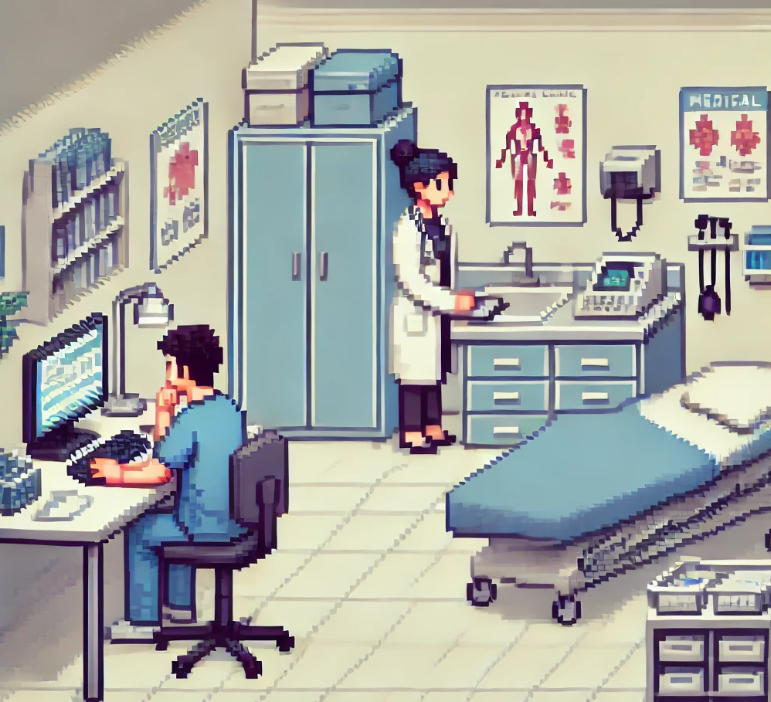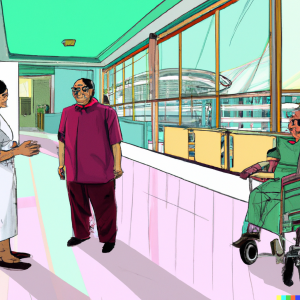
Addressing Skill Gaps to Strengthen the Public Health Workforce
The public health workforce is at a critical juncture. After years of budget cuts, workforce attrition, and an unprecedented global pandemic, local health departments (LHDs) across the United States are faced with new challenges—and new opportunities. With renewed attention, increased funding, and heightened responsibilities, the need to strengthen the public health workforce, particularly the frontline workers, has never been more urgent. But are our local health departments equipped with the skills needed to meet today’s complex public health demands?
A recent study sheds light on this question, revealing the skill gaps that exist among public health workers, particularly in smaller LHDs, and providing insights into how we can address these gaps to create a more capable and resilient workforce.
The Importance of Frontline Workers in Public Health
Frontline workers are the backbone of public health. They make up about three-quarters of the public health workforce and serve as the first point of contact for many community members. These workers, often not in leadership roles, handle a wide array of responsibilities, from disease surveillance to vaccination campaigns and health education. They are vital in promoting health equity and addressing the unique needs of the communities they serve.
However, this study found that many frontline workers, especially in smaller health departments, lack the formal education and specialized training that larger, better-funded departments have. This education gap is reflected in persistent skill shortages, particularly in areas such as resource management, strategic thinking, and change management.
But why do these gaps exist, and what can be done about them?
Exploring the Data: Skill Gaps Across Different Types of Health Departments
The study, based on the 2021 Public Health Workforce Interests and Needs Survey (PH WINS), offers a detailed look at the educational backgrounds and skill gaps of frontline public health workers in six states—Illinois, Indiana, Michigan, Minnesota, Ohio, and Wisconsin (Region 5). One of the most notable findings is that smaller LHDs employ a significant number of workers without a four-year college degree or public health specialization. While about half of small LHD workers had a bachelor’s degree, only 12% held a graduate degree.
On the other hand, larger health departments and state health agencies had more employees with advanced degrees. Unsurprisingly, workers in small LHDs reported more skill gaps than their counterparts in larger departments. The gaps were most pronounced in key areas like financial management, strategic thinking, and community engagement—skills critical for navigating the growing complexity of public health.
Why Do Skill Gaps Persist in Small Health Departments?
Small health departments often face significant resource constraints. These agencies, especially in rural areas, struggle to attract and retain highly educated professionals partly because they cannot compete with the salaries and benefits offered by larger organizations. As a result, many smaller LHDs rely on paraprofessionals or community health workers who may not have formal public health training but have strong ties to their communities.
While this on-the-job training has its merits—longer tenure in public health was associated with fewer skill gaps—formal education still plays a crucial role in preparing the workforce for the challenges ahead. Workers with graduate degrees, for example, reported significantly fewer gaps in critical skill areas.
However, it’s not just about hiring more highly educated workers. The study highlights the need for tailored training programs that address the specific challenges faced by small health departments. These programs should focus on cross-cutting skills, such as leadership, systems thinking, and policy development, rather than just technical expertise. In this way, even workers without advanced degrees can be equipped with the tools they need to succeed.
Learning on the Job: The Value of Tenure in Public Health
Interestingly, the study found that a degree in public health was not necessarily associated with fewer skill gaps. Instead, workers with more years of experience in public health tended to report fewer gaps, highlighting the value of learning on the job. This suggests that while formal education is important, hands-on experience is just as critical in building a capable public health workforce.
This finding underscores the need for ongoing training and professional development, especially for new employees. With the right support and resources, workers can gain the skills they need to perform their roles effectively, regardless of their educational background.
How Can We Bridge the Gap?
So, what can be done to address these skill gaps and strengthen the public health workforce? The study points to several key strategies:
- Regional Training Centers: Federally funded regional public health training centers can play a pivotal role in providing no-cost training materials and programs, particularly for small and under-resourced health departments. These centers can offer courses on foundational public health concepts, leadership, and strategic skills tailored to each agency’s needs.
- Holistic Training Programs: Rather than focusing solely on technical skills, training programs should emphasize cross-cutting core competencies that are essential across all public health roles. These include resource management, systems thinking, and change management, which are areas where many frontline workers reported skill gaps.
- Targeted Interventions for Small Health Departments: Training programs should be customized to meet the unique needs of small health departments, which often face greater challenges in attracting and retaining highly skilled workers. By providing accessible, flexible, and relevant training opportunities, we can help these agencies build a more capable workforce.
- On-the-Job Learning: Given that tenure in public health was associated with fewer skill gaps, it’s important to support new workers as they learn on the job. This could include mentorship programs, peer support networks, and regular check-ins to ensure that employees are receiving the guidance and resources they need to succeed.
Join the Conversation
What skill gaps have you observed in your public health work, and how do you think we can address them? Have you seen the benefits of on-the-job learning in your career or organization? Share your thoughts and experiences in the comments or on social media using #PHWorkforce.
Transform Your Knowledge in Minutes!
Our weekly newsletter delivers easy-to-read summaries of the latest public health research. Perfect for busy professionals or anyone who wants to stay informed without the jargon. Subscribe for free and take control of your knowledge today! Click below!



